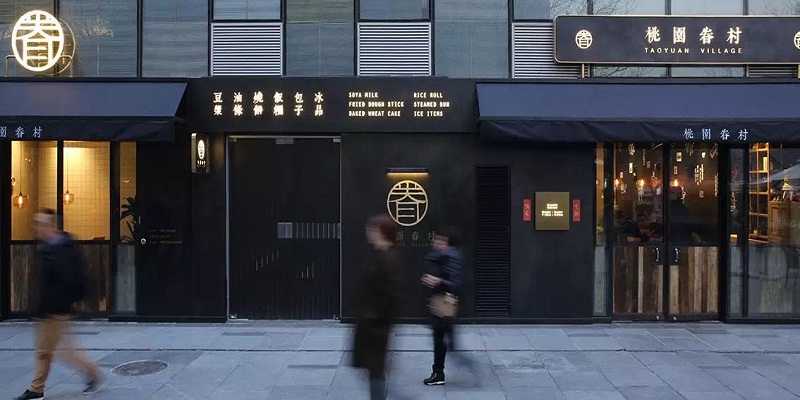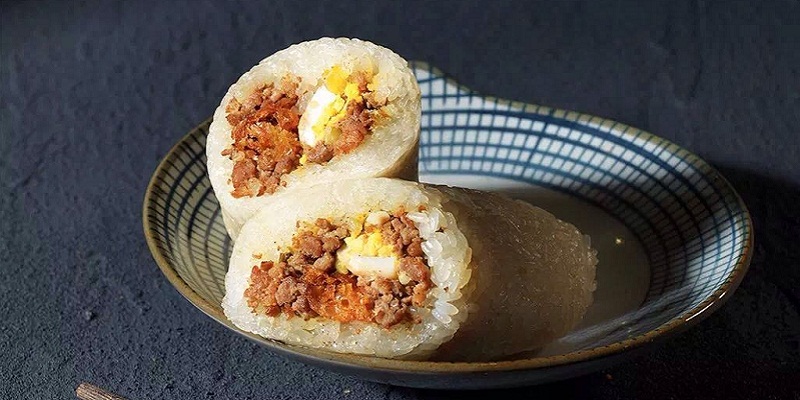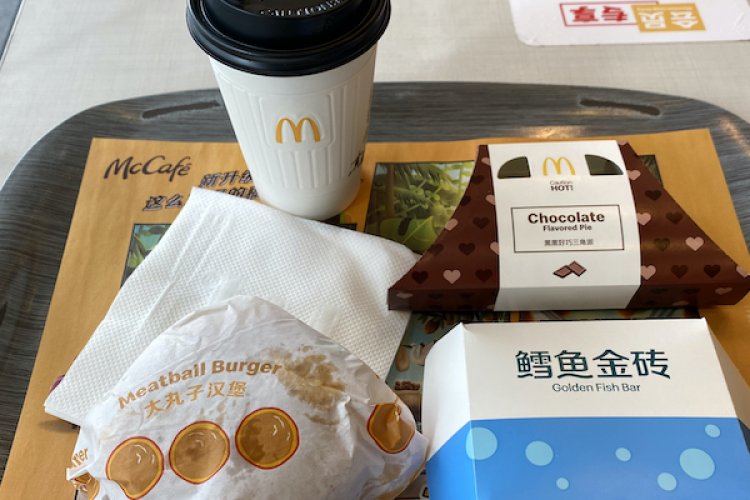Taiwanese Snacks and Canteen Vibes at Taoyuan Village
With five outlets in Shanghai, Taiwanese canteen-style restaurant Taoyuan Village now expands its service to Beijing, having opened its bustling Taikooli venue on March 5. This is a place that you can rely on to be open for a quick bite, from an early snack at 7am to a late night canteen amosphere till 2.30am; people come here to tuck in, zone out, and take a break from their hectic lives elsewhere.

There was already a line outside the restaurant when we arrived at high noon, utlizing a system whereby you order at the cashier, grab a number, find a seat, and wait patiently for a fuwuyuan to bring you your food.
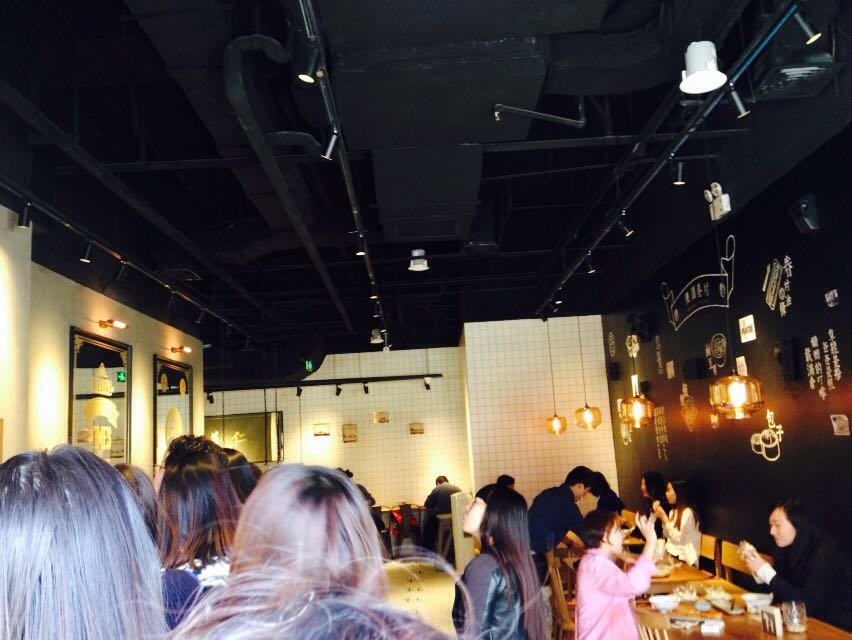
The service was fast, even at capacity, taking only five minutes to arrive. It might be a little hard to order without any Chinese but they do have a tablet to show you dishes if you're at a loss.
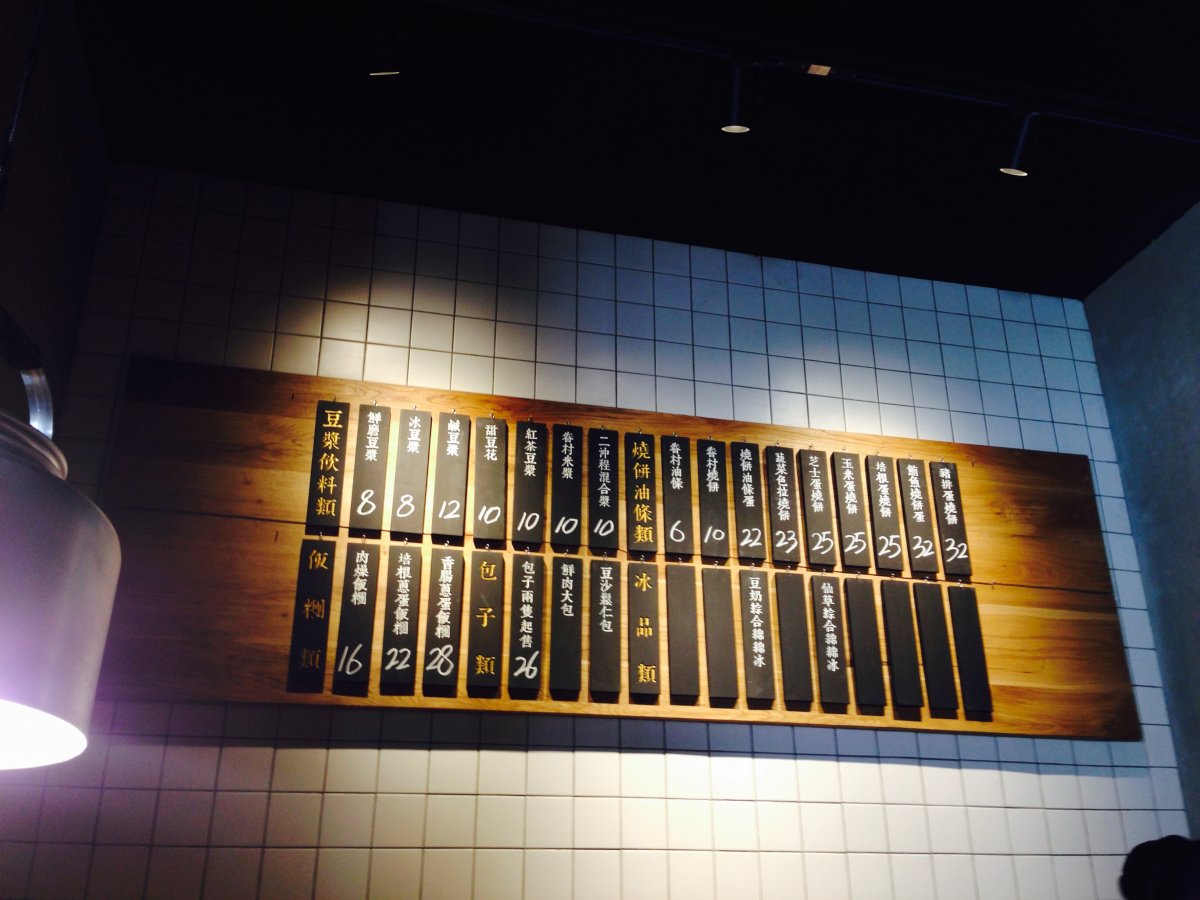
Taoyuan Village has five main food categories in total: warm soy-based drinks (RMB 8-10); deep-fried dough (油条 youtiao, RMB 6) and cakes (烧饼 shaobing, RMB 22-32); three rice rolls (饭团 fantuan, RMB 16-28), steamed buns (包子 baozi, RMB 26), and iced desserts for the warmer months.
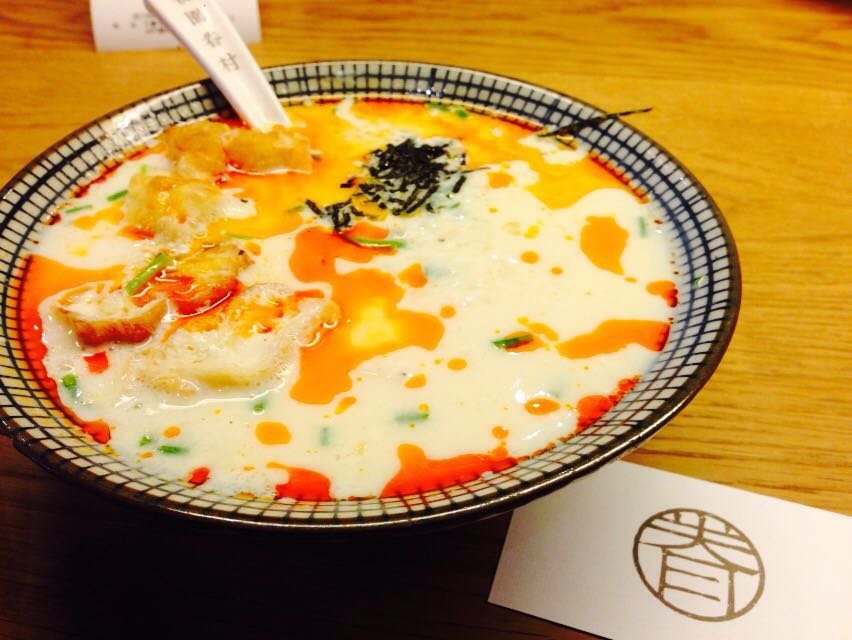
We ordered salty soy milk, rice rolls, and baked cheese wheat cake. The salty soy milk (咸豆浆, RMB 12), a popular drink in the south, especially in and around Shanghai, is drunk with soy sauce, red pepper oil, sliced seaweed, scallions and preserved vegetables, making it more like a soup than its sweetened counterpart (甜豆浆, RMB 10). This place might serve the most traditional salty soy milk in Beijing and is highly recommended for those who want to try something different.
The rice rolls were pretty good, tasting like a Japanese sushi roll without the seaweed, and wrapped with sticky rice, deep-fried batter, egg, braised pork, and preserved radish. The end result provides a substantial snack rich with texture: soft from the rice, crispy from the radish, and chewy from the deep-fried batter.
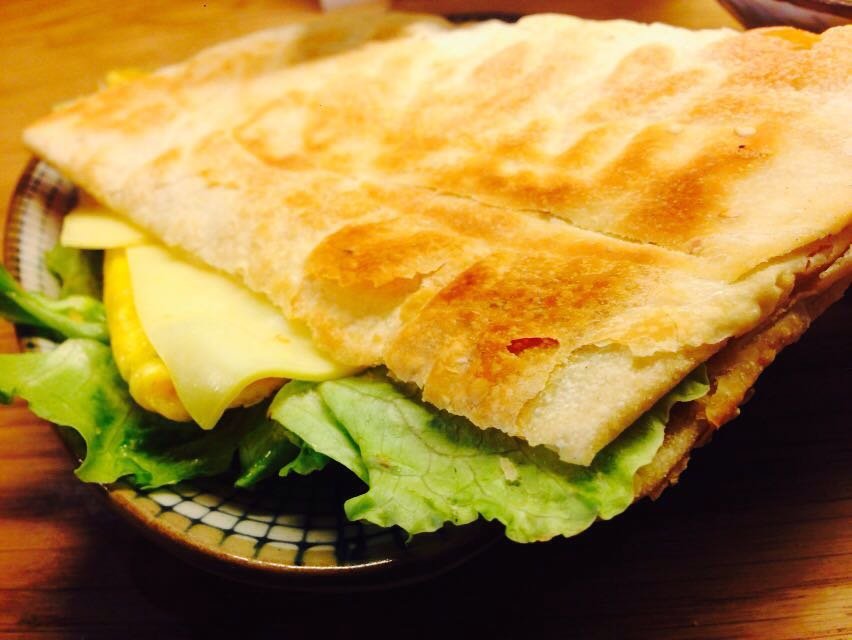
The baked cheese wheat cake (芝士蛋烧饼, RMB 25), comes made from a type of crispy cake, several slices of cheese, and lettuce. This version, as well as the tuna, bacon, and pork variations, are a much-loved Taiwanese breakfast staple.
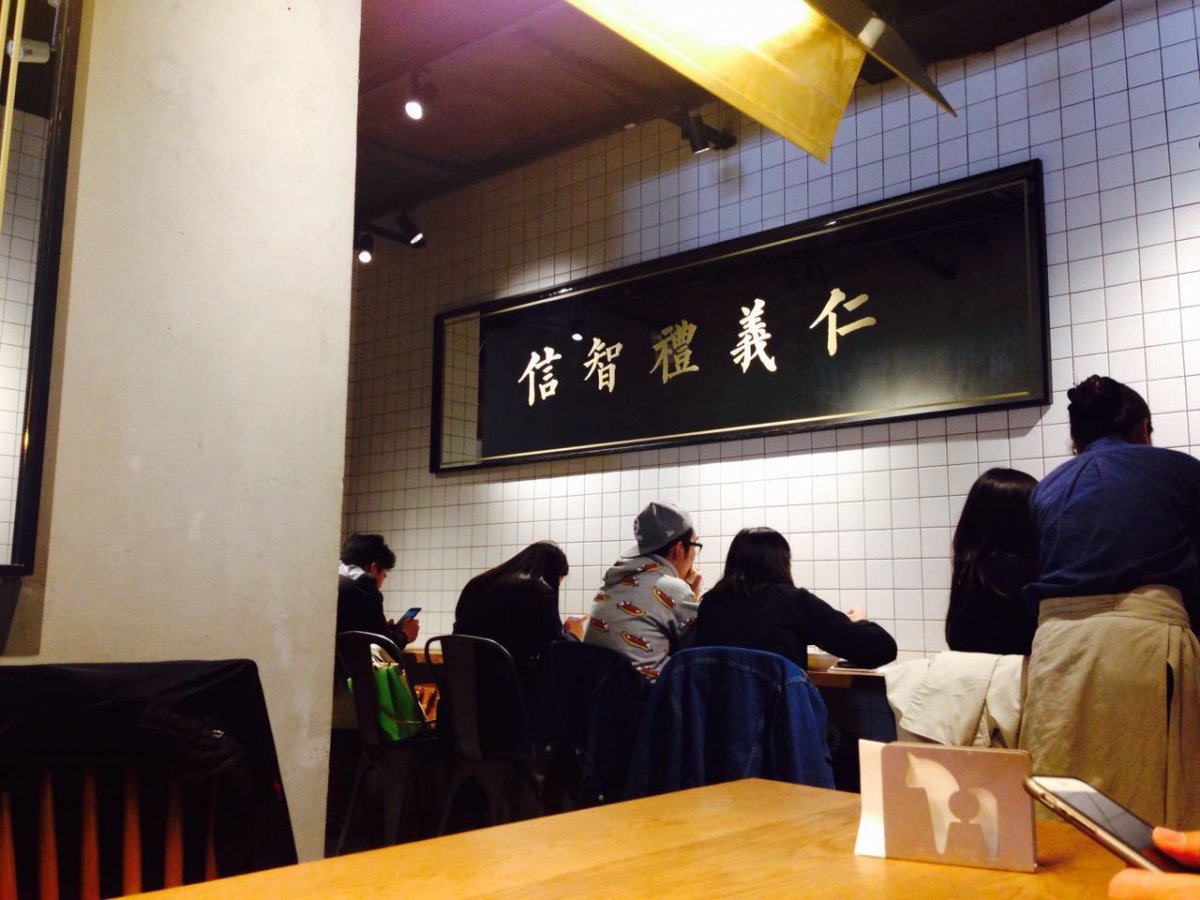
There are no big dishes on offer, all options are designed as single portions, to be eaten by one person. It's unlikely to become my favorite Taiwanese restaurant, but I will certainly be back to try the sweet soy milk and a steamed bun to quell late night hunger pangs, for sure.
Taoyuan Village 桃园眷村
S9-10 Taikooli South, Sanlitun, next to Queen’s Café (6416 5117)
朝阳区三里屯太古里南区S9-10
More stories by this author here.
Email: tracywang@thebeijinger.com
Twitter: @flyingfigure
Instagram: @flyingfigure
Photos: Taoyuan Village, Tracy Wang
Related stories :
Comments
New comments are displayed first.Comments
![]() PatrickLi
Submitted by Guest on Thu, 03/31/2016 - 17:10 Permalink
PatrickLi
Submitted by Guest on Thu, 03/31/2016 - 17:10 Permalink
Re: Taiwanese Snacks and Canteen Vibes at Taoyuan Village
眷村, juancun, are military dependent's villages built in 1940s and 1950s in Taiwan for KMT soldiers and their family members who retreated to Taiwan in 1949. The place's English name, Taoyuan Village, kind of misses the nuanced meaning that this place actually serves Mainland food, with recipes preserved by Mainland families retreated to Taiwan in 1949. For example, salty soy milk is dyed-in-the-wool Shanghai food, and that's not something special, that's what Shanghai people eat every single morning until the 1980s. It's one of the Shanghai 四大金刚---a nickname for four most common Shanghai style breakfast food. I grew up with my grandparents who are from Shanghai and they literally forced me to eat it because they thought it's tasty.
In fact I can't remember a good Shanghai place in Beijing. Some are decent but I don't remember any of these places serves breakfast---that's actually quite strange, and sad, because I and many others alike love breakfast, so this place is definitely a good addition to Beijing's food scene, though it claims that it's from Taiwan.
Sometimes places like this taste even better than the orginial food that you'd find in China. For example there are some really good youtiao and Shanghai food in NYC. Part of the reason is diaspora people tend to be more loyal to the original recipe than their home country fellows. For example Shanghainese places in NYC tend to put more wine in Drunken Chicken than most of the restaurant in Shanghai and Zhejiang right now, and I was told by a friend that it's acutally the older way of doing it.
Comarisons as such are very interesting and are the residue of history. For someone like me who grew up in Mainland, it was quite surprising for me to see that youtiao in New York and Taipei can taste so good, though being slightly different. It's hard to imagine that such thing would happen in the future with the whole world being wired by the internet and aeroplanes.
Validate your mobile phone number to post comments.

